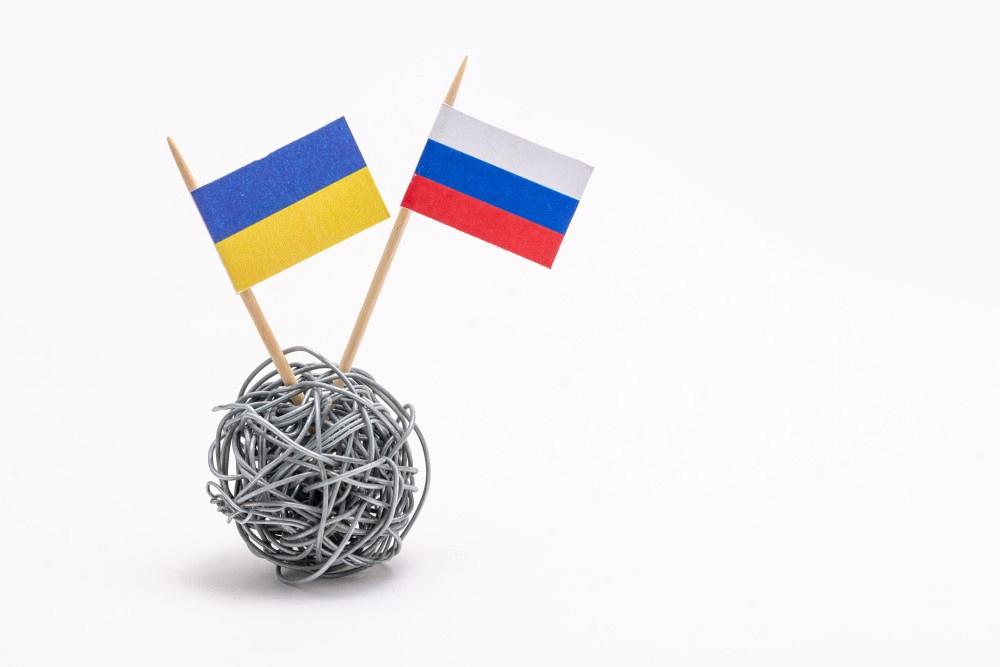President
- FMA
- The Fabricator
- FABTECH
- Canadian Metalworking
Categories
- Additive Manufacturing
- Aluminum Welding
- Arc Welding
- Assembly and Joining
- Automation and Robotics
- Bending and Forming
- Consumables
- Cutting and Weld Prep
- Electric Vehicles
- En Español
- Finishing
- Hydroforming
- Laser Cutting
- Laser Welding
- Machining
- Manufacturing Software
- Materials Handling
- Metals/Materials
- Oxyfuel Cutting
- Plasma Cutting
- Power Tools
- Punching and Other Holemaking
- Roll Forming
- Safety
- Sawing
- Shearing
- Shop Management
- Testing and Measuring
- Tube and Pipe Fabrication
- Tube and Pipe Production
- Waterjet Cutting
Industry Directory
Webcasts
Podcasts
FAB 40
Advertise
Subscribe
Account Login
Search
Will the Russian invasion of Ukraine affect your fabrication shop?
Metal manufacturers should be ready to respond to higher prices and material shortages
- By Bill Frahm
- March 7, 2022
- Article
- Shop Management

The Russian invasion of Ukraine could affect North American metal fabricating and forming companies. eltoro69/iStock/Getty Images Plus
Russia’s invasion of Ukraine will affect our economy for the near term and promises to have a significant impact on the formed sheet metal industry. Even if the attack de-escalates, political uncertainty and economic sanctions will still affect the global economy.
While no one knows what will happen, managers and employees need to watch the situation, anticipate changes, and respond however they can. Each of us can be a positive influence on the financial health of our organizations by learning about and responding to the risks.
What might happen in the near term?
Energy Markets
Global political instability influences oil prices nearly as much as supply and demand issues during times of crisis. Threats to oil production, pipelines, shipping, and the structure of the market drive increases in oil prices.
Natural gas prices also are influenced by political instability and the probability of supply disruption. Several years ago, the price per Million British Thermal Unit (MMBTU) of natural gas was directly influenced by the price of oil, but changes in the market and energy production technologies have influenced a decoupling of natural gas prices from oil prices. Long-term prices do seem to still show similar trends.
The invasion of Ukraine and resulting sanctions will influence the supply of natural gas to European markets from Russian producers. As a result, you can expect to see significant and sustained increases in the cost of energy used to power your plants.
Material Prices and Availability
Speculation will enter the aluminum and nickel markets because Ukraine and Russia are significant suppliers of these metals. Supplies of nickel were already tight for meeting the demands for stainless steel and lithium Ion batteries, and now sanctions and retaliation measures could further limit the supply of nickel and aluminum.
Ukraine is a critical supplier of rare gases like krypton, neon, and xenon. Supply disruptions will impact the markets for high-technology equipment that uses these rare gases.
Russian company Norilsk Nickel is the world’s largest supplier of palladium, used for catalytic converters. Disruption in supply will directly influence automakers’ abilities to develop product for the market.
And to top it off, disruption in the supply of critical materials and rare gases could prolong the current microchip shortage.
Economies
With COVID-19 already straining the domestic economy, supply chain failures and surging demand for consumer goods are adding inflationary pressure. If the Federal Reserve raises interest rates to address these issues, demand for appliances, automobiles, and new construction could slow down, directly affecting demand for sheet metal components. And if suppliers remain unable to meet even decreased demand, consumer prices will rise significantly.
How Can You Help?
We are in stressful and challenging times. Our options seem to be to lament and do nothing or to take action to manage the negative effects of the invasion and the pandemic on our companies. Mostly, we can take steps to reduce demand for energy in our shops, which will likely also improve production results:
- Maintain and lubricate machines to ensure they are as energy efficient as possible.
- Use the right lubricants to prevent excess friction and heat and check how they are being applied. Clean and replace worn nozzles, and make sure that rollers are applying lubricant in a way that limits waste.
- Inspect lines and equipment for leaks.
- Install energy-efficient lighting.
- Power down equipment whenever possible.
- Manage process-related heating costs by maintaining equipment for efficiency. Evaluate your heating equipment installation practices, and consider installing waste-heat recovery systems.
- Schedule production to take place outside of peak-rate periods.
- Talk to colleagues and employees to promote best practices in energy consumption.
About the Author

Bill Frahm
P.O. Box 71191
Rochester Hills, MI 48307
248-506-5873
subscribe now

The Fabricator is North America's leading magazine for the metal forming and fabricating industry. The magazine delivers the news, technical articles, and case histories that enable fabricators to do their jobs more efficiently. The Fabricator has served the industry since 1970.
start your free subscription- Stay connected from anywhere

Easily access valuable industry resources now with full access to the digital edition of The Fabricator.

Easily access valuable industry resources now with full access to the digital edition of The Welder.

Easily access valuable industry resources now with full access to the digital edition of The Tube and Pipe Journal.
- Podcasting
- Podcast:
- The Fabricator Podcast
- Published:
- 04/16/2024
- Running Time:
- 63:29
In this episode of The Fabricator Podcast, Caleb Chamberlain, co-founder and CEO of OSH Cut, discusses his company’s...
- Trending Articles
How to set a press brake backgauge manually

Capturing, recording equipment inspection data for FMEA

Tips for creating sheet metal tubes with perforations

Are two heads better than one in fiber laser cutting?

Hypertherm Associates implements Rapyuta Robotics AMRs in warehouse

- Industry Events
16th Annual Safety Conference
- April 30 - May 1, 2024
- Elgin,
Pipe and Tube Conference
- May 21 - 22, 2024
- Omaha, NE
World-Class Roll Forming Workshop
- June 5 - 6, 2024
- Louisville, KY
Advanced Laser Application Workshop
- June 25 - 27, 2024
- Novi, MI


























